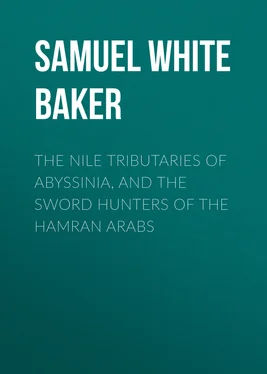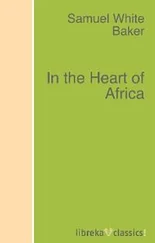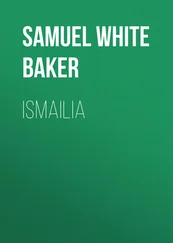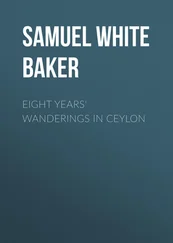Samuel White Baker - The Nile Tributaries of Abyssinia, and the Sword Hunters of the Hamran Arabs
Здесь есть возможность читать онлайн «Samuel White Baker - The Nile Tributaries of Abyssinia, and the Sword Hunters of the Hamran Arabs» — ознакомительный отрывок электронной книги совершенно бесплатно, а после прочтения отрывка купить полную версию. В некоторых случаях можно слушать аудио, скачать через торрент в формате fb2 и присутствует краткое содержание. Жанр: Путешествия и география, История, foreign_edu, foreign_antique, foreign_prose, на английском языке. Описание произведения, (предисловие) а так же отзывы посетителей доступны на портале библиотеки ЛибКат.
- Название:The Nile Tributaries of Abyssinia, and the Sword Hunters of the Hamran Arabs
- Автор:
- Жанр:
- Год:неизвестен
- ISBN:нет данных
- Рейтинг книги:3 / 5. Голосов: 1
-
Избранное:Добавить в избранное
- Отзывы:
-
Ваша оценка:
- 60
- 1
- 2
- 3
- 4
- 5
The Nile Tributaries of Abyssinia, and the Sword Hunters of the Hamran Arabs: краткое содержание, описание и аннотация
Предлагаем к чтению аннотацию, описание, краткое содержание или предисловие (зависит от того, что написал сам автор книги «The Nile Tributaries of Abyssinia, and the Sword Hunters of the Hamran Arabs»). Если вы не нашли необходимую информацию о книге — напишите в комментариях, мы постараемся отыскать её.
The Nile Tributaries of Abyssinia, and the Sword Hunters of the Hamran Arabs — читать онлайн ознакомительный отрывок
Ниже представлен текст книги, разбитый по страницам. Система сохранения места последней прочитанной страницы, позволяет с удобством читать онлайн бесплатно книгу «The Nile Tributaries of Abyssinia, and the Sword Hunters of the Hamran Arabs», без необходимости каждый раз заново искать на чём Вы остановились. Поставьте закладку, и сможете в любой момент перейти на страницу, на которой закончили чтение.
Интервал:
Закладка:
The entire country from Gozerajup to Cassala is a dead flat, upon which there is not one tree sufficiently large to shade a full-sized tent: there is no real timber in the country, but the vast level extent of soil is a series of open plains and low bush of thorny mimosa: there is no drainage upon this perfect level; thus, during the rainy season, the soakage actually melts the soil, and forms deep holes throughout the country, which then becomes an impracticable slough, bearing grass and jungle. Upon this fertile tract of land, cotton might be cultivated to a large extent, and sent to Berber, via Atbara, from Gozerajup, during the season of flood. At the present time, the growth is restricted to the supply required by the Arabs for the manufacture of their cloths. These are woven by themselves, the weaver sitting in a hole excavated in the ground before his rude loom, shaded by a rough thatch about ten feet square, supported upon poles. There is a uniformity in dress throughout all the Nubian tribes of Arabs, the simple toga of the Romans this is worn in many ways, as occasion may suggest, very similar to the Scotch plaid. The quality of cotton produced is the same as that of Lower Egypt, and the cloths manufactured by the Arabs, although coarse, are remarkably soft. The toga or tope is generally ornamented with a few red stripes at either extremity, and is terminated by a fringe.
As we approached within about twenty-five miles o Cassala, I remarked that the country on our left was in many places flooded; the Arabs, who had hitherto been encamped in this neighbourhood during the dry season, were migrating to other localities in the neighbourhood of Soojalup and Gozerajup, with their vast herds of camels and goats. As rain had not fallen in sufficient quantity to account for the flood, I was informed that it was due to the river Gash, or Mareb, which, flowing from Abyssinia, passed beneath the walls of Cassala, and then divided into innumerable ramifications; it was eventually lost, and disappeared in the porous soil, after having flooded a large extent of country. This cause accounted for the never-failing wells of Soojalup—doubtless a substratum of clay prevented the total escape of the water, which remained at a depth of forty feet from the surface. The large tract of country thus annually flooded by the river Gash is rendered extremely fruitful, and is the resort of both the Hadendowa and the Hallonga Arabs during the dry season, who cultivate large quantities of dhurra, and other grain. Unfortunately, in these climates, fertility of soil is generally combined with unhealthiness, and the commencement of the rainy season is the signal for fevers and other maladies. No sooner had we arrived in the flooded country than my wife was seized with a sudden and severe attack, which necessitated a halt upon the march, as she could no longer sit upon her camel. In the evening, several hundreds of Arabs arrived, and encamped around our fire. It was shortly after sunset, and it was interesting to watch the extreme rapidity with which these swarthy sons of the desert pitched their camp—a hundred fires were quickly blazing; the women prepared the food, children sat in clusters round the blaze, as all were wet from paddling through the puddled ground, from which they were retreating.
No sooner was the bustle of arrangement completed, than a grey old man stepped forward, and, responding to his call, every man of the hundreds present formed in line, three or four deep. At once there was total silence, disturbed only by the crackling of the fires, or by the cry of a child; and with faces turned to the east, in attitudes of profound devotion, the wild but fervent followers of Mahomet repeated their evening prayer.
The flickering red light of the fires illumined the bronze faces of the congregation, and as I stood before the front line of devotees, I took off my cap in respect for their faith, and at the close of their prayer I made my salaam to their venerable Faky (priest); he returned the salutation with the cold dignity of an Arab. In this part the coorbatch of the Turk was unnecessary, and we shortly obtained supplies of milk. I ordered the dragoman Mahomet to inform the Faky that I was a doctor, and that I had the best medicines at the service of the sick, with advice gratis. In a short time I had many applicants, to whom I served out a quantity of Holloway's pills. These are most useful to an explorer, as, possessing unmistakeable purgative properties, they create an undeniable effect upon the patient, which satisfies him of their value. They are also extremely convenient, as they may be carried by the pound in a tin box, and served out in infinitesimal doses from one to ten at a time, according to the age of the patients. I had a large medicine chest, with all necessary drugs, but I was sorely troubled by the Arab women, many of whom were barren, who insisted upon my supplying them with some medicine that would remove this stigma and render them fruitful. It was in vain to deny them; I therefore gave them usually a small dose of ipecacuanha, with the comforting word to an Arab, "Inshallah," "if it please God." At the same time I explained that the medicine was of little value.
On the following morning, during the march, my wife had a renewal of fever. We had already passed a large village named Abre, and the country was a forest of small trees, which, being in leaf, threw a delicious shade. Under a tree, upon a comfortable bed of dry sand, we wer obliged to lay her for several hours, until the paroxysm passed, and she could remount her dromedary. This she did with extreme difficulty, and we hurried toward Cassala, from which town we were only a few miles distant.
For the last fifty or sixty miles we had seen the Cassala mountain—at first a blue speck above the horizon. It now rose in all the beauty of a smooth and bare block of granite, about 3,500 feet above the level of the country with the town of Cassala at the base, and the roaring torrent Gash flowing at our feet. When we reached the end of the day's march, it was between 5 and 6 P.M. The walled town was almost washed by the river, which was at least 500 yards wide. However, our guides assured us that it was fordable, although dangerous on account of the strength of the current. Camels are most stupid and nervous animals in water; that ridden by my wife was fortunately better than the generality. I sent two Arabs with poles, ahead of my camel, and carefully led the way. After considerable difficulty, we forded the river safely; the water was nowhere above four feet deep, and, in most places, it did not exceed three; but the great rapidity of the stream would have rendered it impossible for the me to cross without the assistance of poles. One of our camels lost its footing, and was carried helplessly down the river for some hundred yards, until it stranded upon a bank.
The sun had sunk when we entered Cassala. It is a walled town, surrounded by a ditch and flanking towers, and containing about 8,000 inhabitants, exclusive of troops. The houses and walls were of unburnt brick, smeared with clay and cow-dung. As we rode through the dusty streets, I sent off Mahomet with my firman to the Mudir; and, not finding a suitable place inside the town, I returned outside the walls, where I ordered the tents to be pitched in a convenient spot among some wild fig-trees. Hardly were the tents pitched than Mahomet returned, accompanied by an officer and ten soldiers as a guard, with a polite message from the Mudir or governor, who had, as usual, kissed the potent firman, and raised it to his forehead, with the declaration that he was "my servant, and that all that I required should be immediately attended to." Shortly after, we were called upon by several Greeks, one of whom was the army doctor, Signor Georgis, who, with great kindness, offered to supply all our wants. My wife was dreadfully weak and exhausted, therefore an undisturbed night's rest was all that was required, with the independence of our own tent.
Читать дальшеИнтервал:
Закладка:
Похожие книги на «The Nile Tributaries of Abyssinia, and the Sword Hunters of the Hamran Arabs»
Представляем Вашему вниманию похожие книги на «The Nile Tributaries of Abyssinia, and the Sword Hunters of the Hamran Arabs» списком для выбора. Мы отобрали схожую по названию и смыслу литературу в надежде предоставить читателям больше вариантов отыскать новые, интересные, ещё непрочитанные произведения.
Обсуждение, отзывы о книге «The Nile Tributaries of Abyssinia, and the Sword Hunters of the Hamran Arabs» и просто собственные мнения читателей. Оставьте ваши комментарии, напишите, что Вы думаете о произведении, его смысле или главных героях. Укажите что конкретно понравилось, а что нет, и почему Вы так считаете.












